Passengers Leave Japan Virus Ship, But New Infections Detected
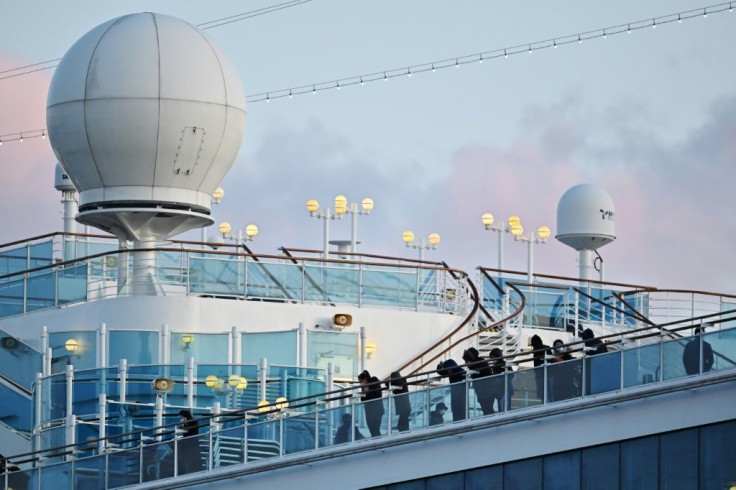
Hundreds of relieved passengers disembarked Wednesday from a coronavirus-stricken cruise ship in Japan after being given the all-clear, but health officials said 79 new cases had been detected.
With 621 positive cases, the Diamond Princess is easily the biggest cluster of infected people outside China, and Japan has faced mounting criticism for its quarantine arrangements as passengers disperse across the world.
The disease has now claimed more than 2,000 lives in China and spread panic worldwide.
Hundreds more cases have been reported in two dozen countries, including in Iran, which reported its first two cases of the virus -- both fatal. Those were the first deaths in the Middle East.
In Japan, those newly diagnosed with the virus will be taken off the ship to the hospital, and after being treated will have to undergo another quarantine.
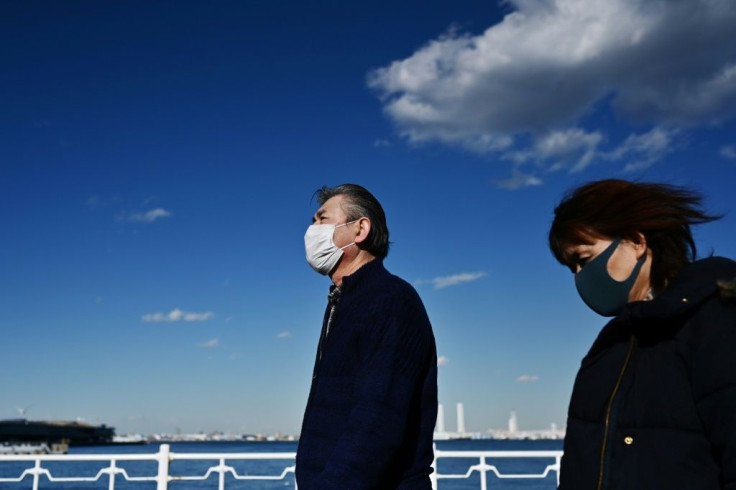
Those who tested negative for the virus began leaving the ship.
"I'm relieved... I want to take a good rest," said a departing 77-year-old Japanese passenger, who declined to give his name. He said he would be boarding Japan's famously crowded railway system to head home.
A fleet of yellow-dotted city buses, plus a dozen or so taxis, whisked away the passengers, many of whom dragged their luggage behind them and waved to former ship-mates on balconies as they disembarked.
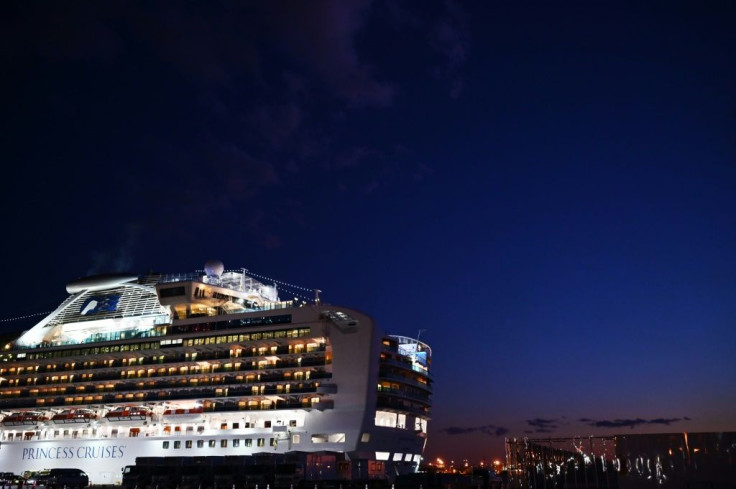
Latest figures from China showed the death toll surging beyond 2,000 with more than 74,000 infected, although the rate of new cases is slowing.
Hong Kong reported its second death from the virus, which has proved extremely infectious.
The World Health Organization said Wednesday that "tremendous progress" had been made in the fight against the COVID-19 virus.
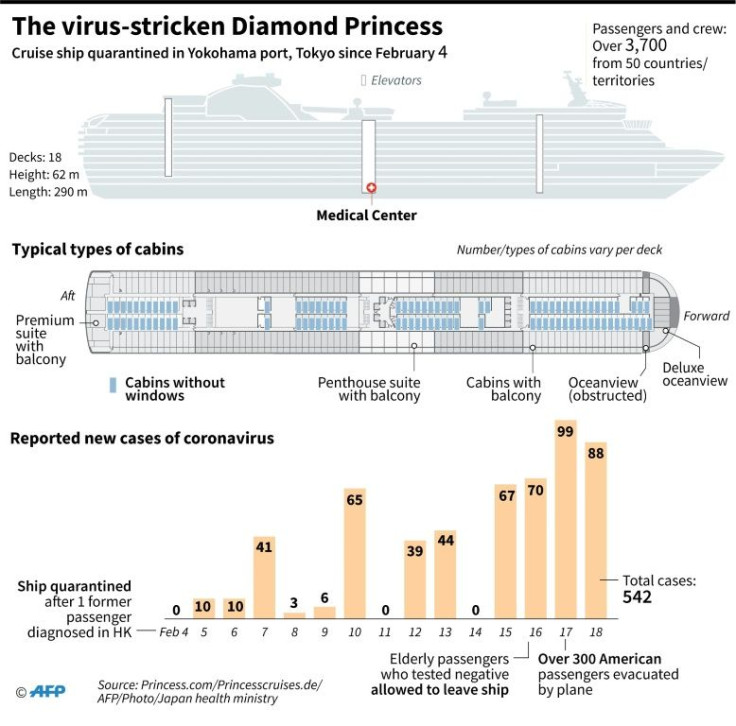
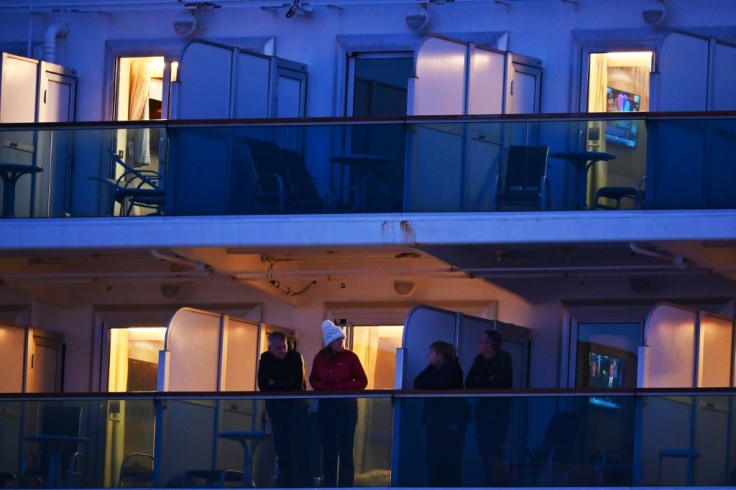
For the 500 passengers leaving the Diamond Princess after testing negative, a difficult 14-day quarantine period has come to an end after their dream cruise turned into a nightmare of fear and boredom, confined in many cases to small windowless cabins.
"Our last deep gratitude to the crews and captain for such an amazing care... during the epic crisis... we can't wait to see you again soon on board again," tweeted passenger Yardley Wong, who left after 14 days cooped up in a small cabin with her six-year-old son.
Many were left onboard with an anxious wait for test results that would allow them to disembark.

Asked how he felt seeing others disembark while remaining on the ship, American lawyer Matt Smith told AFP: "I need an emoji for envy."
Michael Ryan, head of the World Health Organization's emergencies programme, said the outbreak was "very serious" and could grow, but stressed that outside China's Hubei province, the epicentre of the outbreak, it was "affecting a very, very tiny, tiny proportion of people".
But in Japan, some have raised concerns about allowing people from the cruise ship to board flights home or spread into the notoriously bustling capital Tokyo.
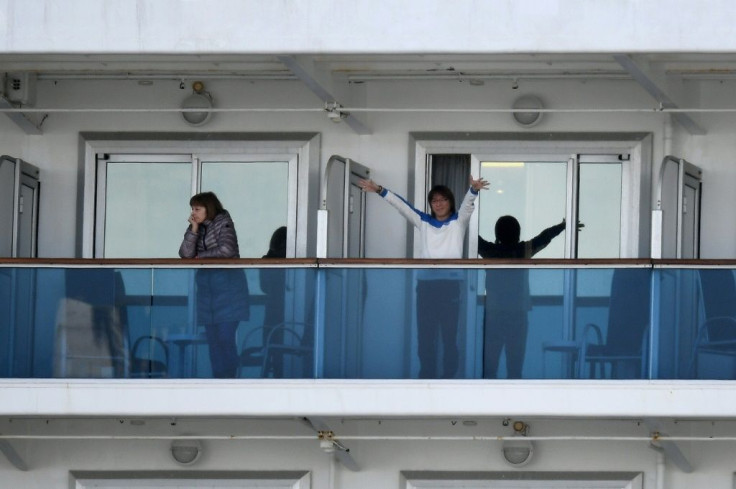
Kentaro Iwata, a professor at the infectious diseases division of Kobe University, blasted the on-ship quarantine as a "major failure, a mistake".
"It is highly likely secondary infections occurred," Iwata told AFP, saying scepticism from abroad of the quarantine was "only natural".
He later said in a video published online that he was self-quarantining after a brief visit to the ship, where he raised major concerns about the procedures on board.
"It was completely chaotic," he said.
Elated passengers also began disembarking from a second cruise ship that has been at the centre of coronavirus fears -- the Westerdam, which came ashore in Sihanoukville, Cambodia.
Hundreds were allowed off after basic health checks -- among them an 83-year-old American woman who was later diagnosed with the virus while in transit in Malaysia.
That raised fears that many other Westerdam passengers could be spreading the virus as they scattered, although no other cases have been recorded.
American Christina Kirby fretted about the stigma some Westerdam passengers could face once they return home.
"I want people to remember that... there's a human behind each of these stories and those who are ill deserve compassion," she told AFP.
Several countries appear to have lost patience with the quarantine aboard the Diamond Princess and chartered planes to repatriate citizens.
In the first such evacuation Monday, more than 300 Americans flew home -- even though 14 had tested positive.
Britain, Hong Kong and Australia are among other countries that have vowed to repatriate people from the ship but will insist on a further 14-day quarantine on home soil.
Nathalie MacDermott, a medical expert at King's College London, recommended a further 14-day self-quarantine for those leaving.
"Given the circumstances on board the Diamond Princess, those passengers leaving the boat should be managed in a similar manner to those individuals departing a highly affected city or region," said MacDermott.
People in Yokohama appeared supportive of the decision to allow the passengers out despite the virus fears.
"I am sure those people on board must be really worried. I hope they can go back to their normal life soon," said 51-year-old Isamu Habiro.
© Copyright AFP 2024. All rights reserved.





















